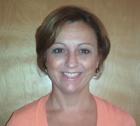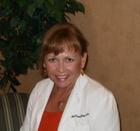CEUs: .1 CEUs
Who Should Attend: Audiologists, physicians, oncologists
Instructional Level: Intermediate
Program Focus: Knowledge
Learner Outcomes:
Upon completion, each participant in the eAudiology Web seminar will be able to:
This eAudiology Web seminar will review the physiological changes in the audio vestibular system that can result with use of ototoxic drugs. Academy Guidelines in monitoring and managing these patients will be discussed as well as the role of the audiologist in managing patients during and after treatment with ototoxic drugs. Additional variables impacting the audio vestibular system in patients treated with ototoxic drugs will be reviewed. Cases will be presented.

Rebekah Cunningham, PhD works at Cardon Children's Hospital Department of Audiology, performing comprehensive evaluations and rehabilitation to infants and young children. She is Adjunct Associate Professor in the Department of Audiology at A.T. Still University (ATSU), the Arizona School of Health Sciences. She instructs residential as well as transitional Au.D. students in a variety of topics, including OAEs, Evoked Potentials, Pediatric Audiology, Newborn Hearing Screening, Auditory Processing and Cochlear Implants. She has practiced privately, at several children's hospitals and at a center for developmental delays, where she was director. She served for 7 years on the American Academy of Audiology (AAA) task force on the early identification of hearing loss in infants and young children. She also served on AAA's education committee, chaired the membership committee for 3 years, and recently finished serving on AAA's board of directors. Dr. Cunningham has taught, presented courses, and published for over 15 years on the topics of assessment and management of children with hearing loss and/or auditory processing difficulties.

Gail Padish Clarin, AuD is a Rehabilitation Services Manager for Cardon Children's Medical Center and Banner Desert medical Center, in Mesa, AZ. She is also an adjunct faculty member of the Audiology Department at the Arizona School of Health Sciences, A.T. Still University in Mesa, AZ and has taught topics including Pediatric Audiology, Otoacoustic Emissions, and Immittance. She is a Stakeholder for the Arizona Department of Public Health Newborn Hearing Screening Program and a previous board member for the Chicago Speech and Hearing Association. She is a board member for her local chapter of the Philanthropic Educational Organization. Dr. Padish Clarin has an extensive clinical background in pediatric audiology, and has worked in educational, ENT, private practice, and hospital settings. She has published and presented on topics related to FM in the classroom, audiological management of pediatric oncology patients, pediatric audiology, auditory neuropathy/ dys-synchrony disorder, tinnitus, communication needs of hospital patients, and nursing care of the hearing impaired patient. Her clinical interests include pediatric audiology and the communication needs of deaf and hard of hearing patients in the medical setting.